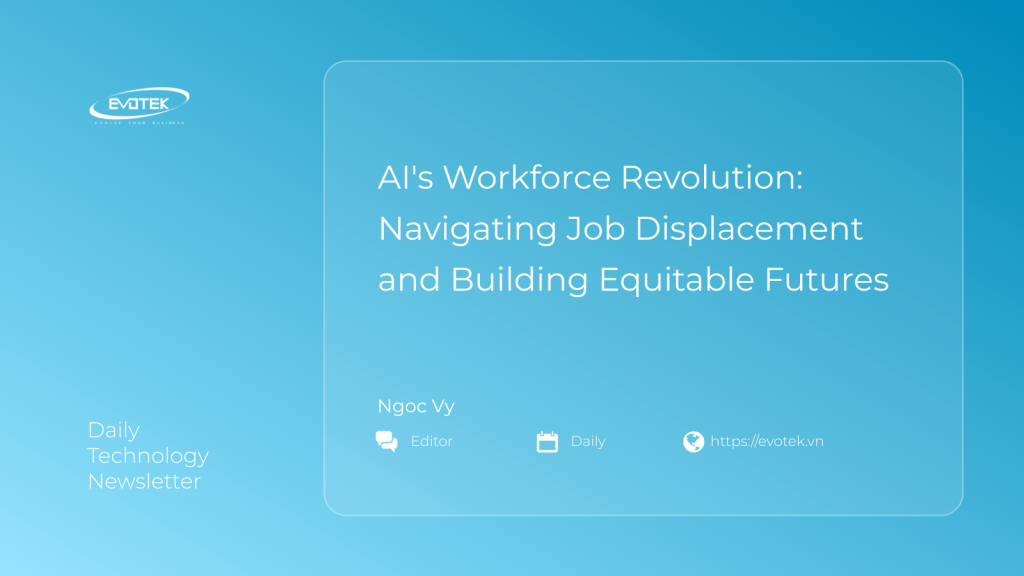The rise of artificial intelligence (AI) is set to dramatically reshape the global job market. By 2030, an estimated 92 million jobs could be displaced by AI, according to the World Economic Forum’s Future of Jobs Report 2025. While this shift promises a net creation of 170 million new roles, the impact will not be evenly distributed, potentially exacerbating existing racial and economic inequalities within the workforce.
Who Faces the Brunt of AI-Driven Job Loss?
Research indicates that specific demographic groups are disproportionately vulnerable to AI-related job displacement. Black and Latino/Hispanic workers are more likely to experience job losses because they are overrepresented in roles highly susceptible to automation and AI. Similarly, a significant number of lower-wage workers find themselves in positions particularly vulnerable to technological replacement.
Jobs identified as most at risk include:
- Cashiers and Ticket Clerks
- Administrative Assistants
- Caretakers
- Cleaners and Housekeepers
Conversely, while these roles face decline, the same report projects growth in jobs such as farmworkers, delivery drivers, construction workers, salespeople, and food processing workers. This highlights a critical shift in the types of skills and roles that will be in demand.
A 2023 McKinsey report on the impact of generative AI on Black communities underscored that Black Americans are overrepresented in roles highly susceptible to automation. Likewise, a study from the UCLA Latino Policy and Politics Institute found that Latino workers in California frequently hold jobs at elevated risk of automation. Without intentional intervention, AI could inadvertently widen societal disparities.
The Critical Tech Talent Gap
Beyond being overrepresented in jobs at risk, Black and Latino communities are simultaneously underrepresented in the burgeoning AI and tech sectors—areas projected for significant growth. LinkedIn’s Jobs on the Rise list for 2025 emphasizes the expanding demand for tech roles, yet a persistent Black tech talent gap remains, as noted by McKinsey in 2023. Similarly, an Axios article in 2024 highlighted the pronounced lack of Latino representation in technology, a challenge that often begins in early education.
Several factors contribute to this significant disparity:
- Limited exposure to technical career pathways.
- Insufficient resources for skill development and professional networking.
- Lack of access to crucial mentorship opportunities.
- Bias that can lead individuals away from STEM fields.
- Internalized feelings of imposter syndrome and inadequacy.
The Peril of Undiverse AI Development
A lack of diversity within AI and tech development teams carries significant ramifications. It can exacerbate issues like algorithmic bias, which is already prevalent in many hiring and recruitment tools. When a homogenous team builds technological solutions, they may unintentionally overlook the diverse lived experiences of a broader user base. For instance, a lack of diverse perspectives on a tech team could lead to a facial recognition system with a higher error rate for darker skin tones, demonstrating how missing red flags during development can lead to unintentional discrimination.
Building an Equitable Future: Employer Responsibilities
For AI to truly benefit all of society, employers must proactively address how its emergence could widen existing divides. An intentional focus on developing workplace policies for the recruitment and retention of talent from underrepresented groups in tech is paramount. Strategies can include:
- Developing robust apprenticeship programs.
- Building strong community partnerships to reach diverse talent pools.
- Sponsoring job fairs specifically for individuals from historically marginalized groups.
Ultimately, organizations striving for long-term success and sustainability must place equity and justice at the forefront of their AI strategies. AI must be built and leveraged with equity as a fundamental prerequisite for success, rather than an afterthought, ensuring that technological advancement leads to a more inclusive and prosperous future for everyone.

 日本語
日本語 한국어
한국어 Tiếng Việt
Tiếng Việt 简体中文
简体中文